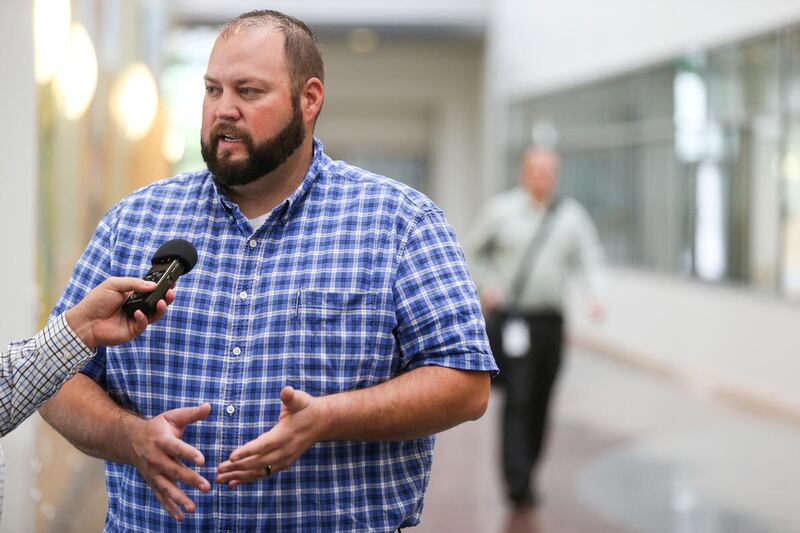SALT LAKE CITY— Three state of Utah employees left Thursday to help Florida in what could be a lengthy recovery process after Hurricane Irma.
Tyson Walker, Brian Nelson and Thayne Mickelson made last-minute preparations Thursday morning to leave for Tallahassee in order to assist mass sheltering and long-term recovery efforts from Hurricane Irma. While the specifics of their mission could change, the Utah employees prepared themselves for a 16-day effort to relieve local personnel and coordinate long-term shelters for people and their pets.
The Utah employees are assisting Florida through the Emergency Management Assistance Compact, which helps states share emergency resources and personnel.
Walker, an emergency manager with the Utah Department of Human Services, said he and the other Utah employees expect to serve a relief role for local emergency managers who tend to typically work 12-hour shifts in the weeks following a hurricane or natural disaster.
"At the end of 15 or 16 days straight, you're really burned out," Walker said. "So that's where we kind of come in, under the EMAC, is to give the people there that break that they need."
Walker said the opportunity to step in is important both for Utah emergency managers to get more experience and for local emergency managers to get a break to be with their families and take care of their homes.
Nelson, a business analyst with the Utah Department of Human Services, said he believes the mission to Florida will involve closing down short-term shelters and placing people in hotels and apartment complexes for long-term stays.
Nelson said the transition back to normal life for people and small businesses will come with reopening supply chains and infrastructure.
"If the roads are affected and logistics are impacted, then mom and pop businesses can't get their supplies," Nelson said. "So that has a big impact on the economy."
Mickelson, who works for the Utah Department of Agriculture and Food, said he will be tasked with placing pets in shelters that are close to where their owners will be staying for long-term sheltering.
"People are really connected to their pets and oftentimes they will not leave, even if there is danger, unless they can take their pets with them," Mickelson said. "It puts them at risk, it puts their pets at risk and puts those that have to rescue them at risk."
He said providing support for pets can be an important part of helping people to get settled after a disaster.





